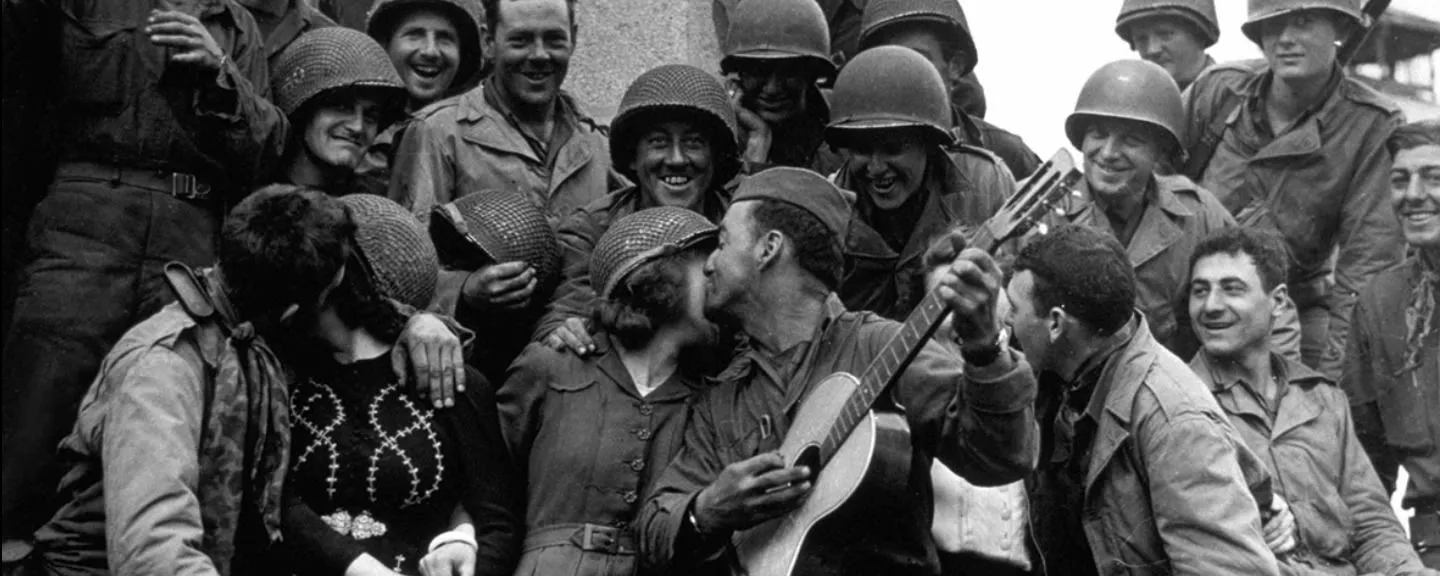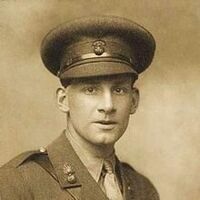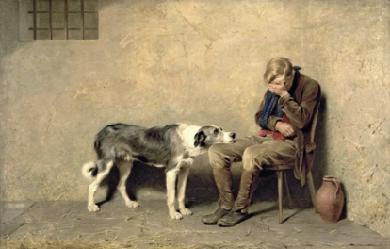
Everyone Sang
by Sophia Brookshire
Siegfried Sassoon's poem "Everyone Sang" was written in April of 1919, and marks the end of WWI. Sassoon was relinquished from his commission in the British Army on March 12, 1919 due to health issues, but was allowed to keep his current rank of captain. Given that Sassoon wasn't on the front-line for the end of the war it is safe to say that "Everyone Sang" is how he imagined the soldier's celebrated when they heard the news that the war was finally over. The tone of this poem is both one of exuberance and sadness; they are happy that the war has ended, but they are sad that not all of them made it to the end alive. The narrator of this poem appears to be a soldier, who has been on the front-line for quite some time, and become overwhelmed by the constant fighting; he is reminiscent of Sassoon.
The first stanza begins with the words: "everyone suddenly burst out singing," which leads one to believe that the dueling nations had finally reached an armistice. The word "everyone" connotes that all of the soldiers on the battle field (friend and foe) joined together in celebration. The joy was sudden and it burst out of them like the bullets had from their guns. The narrator goes on to say that he was filled with as much delight as an imprisoned (caged) bird feels when they first discover freedom. He no longer has to go against nature; birds are meant to fly free high up in the sky, and man is meant to live peacefully with one another not kill each other. War takes over every facet of a soldier's life: they are taken away from their loved ones, unable to communicate with their loved ones as much as they would like, and they have to be constantly on guard to avoid death. It is a very stressful situation, so when that is over, at last, it is like a great weight has been lifted off of their shoulders and they are overwhelmed with joy.
The soldier's voices have been suddenly lifted in their merriment. Gone are the days of silence and fear and the sounds of the gunfire, bombs, and screaming. The horror that was their reality left with the setting of the sun, and beauty arose in its place. His "heart was shaken with tears" of excitement and sadness; he was happy that the war had ended, but he was sorry that not all of his fellow soldiers made it through to the end. "O" is used to show that the narrator is lamenting as he is saying the following lines. He wishes with every fiber of his being that the dead soldiers could have been birds also, so that they could have felt the joy that freedom brings. The song the soldier's sang that day was wordless meaning that it consisted of their cries of joy and relief; the noises that they made on that day were like music to one's ears. The song will never be over, because they made it through the war alive.







